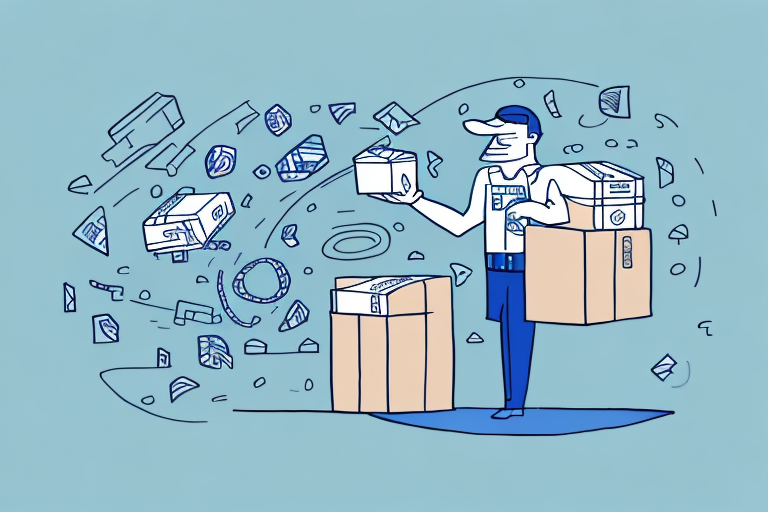Importance of Quality Control in E-commerce
Product quality is a cornerstone for the success of any e-commerce business. Ensuring high-quality products helps build a strong reputation, enhances customer satisfaction, and drives repeat business. According to a Statista report, 90% of consumers consider product quality a critical factor in their purchase decisions.
Key Strategies for Maintaining Product Quality
- Conducting Product Testing: Implement rigorous testing protocols to ensure products meet quality standards before reaching customers.
- Third-Party Quality Control Services: Partner with independent quality control firms to provide unbiased assessments of product quality.
- Monitoring Customer Feedback: Regularly review customer reviews and feedback to identify and address quality issues promptly.
Ensuring Safe Delivery of Products
One of the significant challenges is delivering products in pristine condition. E-commerce businesses can mitigate this by:
- Using specialized packaging materials to protect fragile or perishable items.
- Partnering with reliable shipping companies that have a track record of safe and timely deliveries.
Accurate Product Descriptions
Providing detailed and accurate product descriptions minimizes misunderstandings and reduces return rates. This includes:
- Offering comprehensive product descriptions.
- Using high-quality images that accurately represent the product.
- Detailing product features and specifications clearly.
Compliance Challenges in E-commerce
Compliance is vital to protect customers and ensure product safety. E-commerce businesses face several compliance challenges, including product labeling, safety standards, and data privacy regulations. Failure to comply can lead to legal penalties and damage to the brand’s reputation.
Common Compliance Issues
- Product Labeling: Ensuring all products are labeled according to regional regulations.
- Product Safety: Adhering to safety standards to prevent harm to consumers.
- Data Privacy: Protecting customer data in compliance with laws like GDPR and CCPA.
Addressing Counterfeit Products
Counterfeit products pose a significant threat to e-commerce businesses. To combat this, companies should:
- Implement product authentication measures.
- Verify and vet suppliers thoroughly.
- Regularly monitor online marketplaces for counterfeit listings.
- Collaborate with law enforcement to address counterfeiters effectively.
Leveraging Technology for Quality Control and Compliance
Technology is a powerful ally in overcoming quality control and compliance challenges. By integrating advanced tools, e-commerce businesses can enhance their operational efficiency and ensure adherence to standards.
Automation in Quality Control
- Automating quality control processes to reduce human error and increase consistency.
- Using RFID technology and barcodes for tracking products throughout the supply chain.
Data Analytics for Insights
Real-time data and analytics provide valuable insights into customer feedback, sales trends, and compliance metrics. This allows businesses to:
- Identify areas for improvement.
- Enhance customer satisfaction.
- Stay ahead of competitors by adapting quickly to market changes.
Managing Regulatory Compliance
Automated documentation and reporting tools simplify the process of maintaining regulatory compliance, ensuring that all necessary paperwork is accurate and up-to-date.
Strategies for Maintaining Product Quality
Maintaining high product quality requires a multifaceted approach that encompasses various strategies and best practices.
Quality Management Systems (QMS)
Implementing a QMS helps establish processes and procedures that ensure consistent product quality. A robust QMS typically includes:
- Standardized testing procedures.
- Clear quality assurance protocols.
- Continuous monitoring and improvement mechanisms.
Supplier Partnerships
Building strong relationships with reputable suppliers ensures that the products sourced meet high-quality standards. This involves:
- Regular audits of suppliers to verify compliance with quality standards.
- Clear communication of quality expectations to all partners.
- Long-term partnerships that foster mutual trust and commitment to quality.
Incorporating Customer Feedback
Actively seeking and integrating customer feedback into the product development process helps in identifying quality issues early and addressing them effectively.
Legal Considerations for E-commerce Businesses
E-commerce businesses must navigate a complex landscape of legal requirements to ensure compliance and avoid costly penalties.
Consumer Protection Laws
Adhering to consumer protection laws ensures that businesses operate fairly and transparently, safeguarding customer rights.
Data Privacy Regulations
Compliance with data privacy laws like GDPR and CCPA is crucial for protecting customer information and maintaining trust.
Tax Compliance
Understanding and adhering to tax laws across different regions is essential to avoid legal complications and financial penalties.
Website Accessibility
Ensuring website accessibility for individuals with disabilities is not only a legal requirement but also broadens the customer base. Key aspects include:
- Providing alternative text for images.
- Including captions for videos.
- Ensuring website navigation is possible using a keyboard.
Conducting and Managing Compliance Audits
Regular compliance audits are essential for ensuring that e-commerce businesses meet all legal and regulatory requirements.
Audit Process
- Preparing an Audit Plan: Define the scope, objectives, and methodology of the audit.
- Reviewing Documentation: Assess all relevant documents to ensure compliance.
- Interviewing Staff: Engage with employees to understand their role in maintaining compliance.
- Conducting Site Visits: Inspect facilities to verify adherence to compliance standards.
Utilizing Third-Party Auditors
Engaging independent auditors provides an objective assessment of compliance efforts, helping identify areas for improvement.
Compliance Management Software
Implementing compliance management software streamlines the audit process, ensuring that all requirements are met efficiently.
Future Trends in E-commerce Quality Control and Compliance
The landscape of e-commerce is continually evolving, with new technologies and regulatory changes shaping the future of quality control and compliance.
Automation and Artificial Intelligence
Automation and AI are set to revolutionize quality control by enabling faster and more accurate inspections and anomaly detection.
Machine Learning Applications
Machine learning algorithms can predict quality issues before they occur, allowing businesses to take proactive measures.
Enhanced Data Security Measures
With increasing data privacy concerns, future trends will focus on advanced encryption and security protocols to protect customer data.
Sustainability and Ethical Standards
There is a growing emphasis on sustainability and ethical practices in e-commerce, driving companies to adopt environmentally friendly and socially responsible quality control measures.
In conclusion, ensuring quality control and compliance is essential for the sustained success of e-commerce businesses. By adopting best practices, leveraging technology, and staying informed about regulatory changes, businesses can overcome challenges and achieve long-term growth.




















